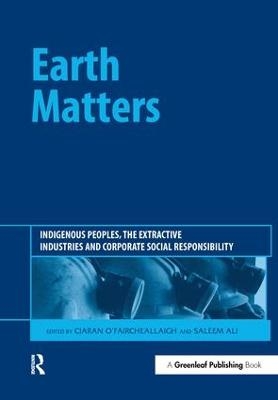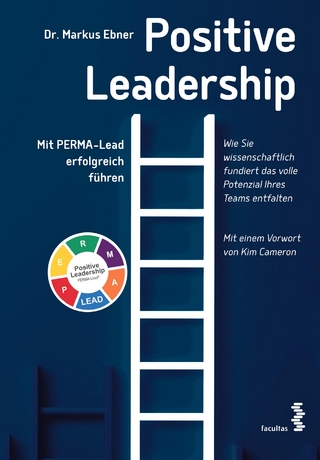
Earth Matters
Greenleaf Publishing (Verlag)
978-1-906093-16-7 (ISBN)
Indigenous peoples have historically gained little from large-scale resource development on their traditional lands, and have suffered from its negative impacts on their cultures, economies and societies. During recent decades indigenous groups and their allies have fought hard to change this situation: in some cases by opposing development entirely; in many others by seeking a fundamental change in the distribution of benefits and costs from resource exploitation. In doing so they have utilised a range of approaches, including efforts to win greater recognition of indigenous rights in international fora; pressure for passage of national and state or provincial legislation recognising indigenous land rights and protecting indigenous culture; litigation in national and international courts; and direct political action aimed at governments and developers, often in alliance with non-governmental organisations (NGOs).
At the same time, and partly in response to these initiatives, many of the corporations that undertake large-scale resource exploitation have sought to address concerns regarding the impact of their activities on indigenous peoples by adopting what are generally referred to as "corporate social responsibility" (CSR) policies. This book focuses on such corporate initiatives. It does not treat them in isolation, recognising that their adoption and impact is contextual, and is related both to the wider social and political framework in which they occur and to the activities and initiatives of indigenous peoples. It does not treat them uncritically, recognising that they may in some cases consist of little more than exercises in public relations. However, neither does it approach them cynically, recognising the possibility that, even if CSR policies and activities reflect hard-headed business decisions, and indeed perhaps particularly if they do so, they can generate significant benefits for indigenous peoples if appropriate accountability mechanisms are in place.
In undertaking an in-depth analysis of CSR and indigenous peoples in the extractive industries, the book seeks to answer the following questions. What is the nature and extent of CSR initiatives in the extractive industries and how should they be understood? What motivates companies to pursue CSR policies and activities? How do specific political, social and legal contexts shape corporate behaviour? What is the relationship between indigenous political action and CSR? How and to what extent can corporations be held accountable for their policies and actions? Can CSR help bring about a fundamental change in the distribution of benefits and costs from large-scale resource exploitation and, if so, under what conditions can this occur?
Earth Matters gathers key experts from around the world who discuss corporate initiatives in Alaska, Ecuador, Australia, Canada, Peru, Papua New Guinea, Indonesia and Russia. The book explores the great diversity that characterises initiatives and policies under the name of "corporate social responsibility", the highly contingent and contextual nature of corporate responses to indigenous demands, and the complex and evolving nature of indigenous–corporate relations. It also reveals much about the conditions under which CSR can contribute to a redistribution of benefits and costs from large-scale resource development.
Earth Matters will be essential reading for those working in and studying the extractive industry worldwide, as well as those readers looking for a state-of-the-art description of how CSR is functioning in perhaps its most difficult setting.
Ciaran O'Faircheallaigh is Professor of Politics and Public Policy at the Griffith Business School, Griffith University, Brisbane. He is the author of A New Approach to Policy Evaluation: Mining and Indigenous People (Ashgate, 2002) and numerous monographs on indigenous people and resource development, negotiation, social impact assessment and public management. He has worked as a negotiator and advisor for many of Australia's leading Aboriginal organisations. Saleem H. Ali is associate professor of environmental planning at the University of Vermont and on the adjunct faculty of Brown University's Watson Institute for International Studies. He is the author of Mining the Environment and Indigenous Development Conflicts (University of Arizona Press, 2004) and the editor of Peace Parks: Conservation and Conflict Resolution (MIT Press, 2007). Dr Ali has a bachelor's degree in Chemistry from Tufts University, a master's in Environmental Studies from Yale University and a doctorate in environmental planning from MIT. Further details about his research can be found on www.uvm.edu/~shali.
Foreword
Wayne Bergmann, Executive Director, Kimberley Land Council
Introduction
Ciaran O'Faircheallaigh, Department of Politics and Public Policy, Griffith University, Australia
1. Corporate social responsibility and democratisation: opportunities and obstacles
Katherine Trebeck, Research and Policy Executive, the Wise Group, Glasgow, UK
2. The impact of resource development on social ties: theory and methods for assessment
Sharman Haley, Institute of Social and Economic Research, University of Alaska Anchorage, USA, and James Magdanz, Alaska Department of Fish and Game, Kotzebue Alaska, USA
3. Realising solidarity: indigenous peoples and NGOs in the contested terrains of mining and corporate accountability
Catherine Coumans, MiningWatch Canada
4. Understanding corporate–Aboriginal agreements on mineral development: a conceptual framework
Ciaran O'Faircheallaigh, Department of Politics and Public Policy, Griffith University, Australia
5. Indigenous peoples, corporate social responsibility and the fragility of the interpersonal domain
Richie Howitt, Department of Human Geography, Macquarie University, Australia, and Rebecca Lawrence, Department of Sociology, University of Stockholm, Sweden
6. Corporate engagement with indigenous women in the minerals industry: making space for theory
Ginger Gibson, Norman B. Keevil Institute of Mining Engineering, University of British Columbia, Canada, and Deanna Kemp, Centre for Social Responsibility in Mining, University of Queensland, Australia
7. Archaeological heritage and traditional forests within the logging economy of British Columbia: an opportunity for corporate social responsibility
Bill Angelbeck, Department of Anthropology, University of British Columbia, Canada
8. Indigenous employment outcomes in the Australian mining industry
Tanuja Barker, Centre for Social Responsibility in Mining, University of Queensland, Australia
9. The fragmentation of responsibilities in the Melanesian mining sector
Colin Filer and John Burton, Research School of Pacific and Asian Studies, Australian National University, and Glenn Banks, School of People, Environment and Planning, Massey University, New Zealand
10. Shareholder activism and corporate behaviour in Ecuador: a comparative study of two oil ventures
Emily McAteer, RiskMetrics Group, USA, Jamie Cerretti, Environment America, USA, and Saleem H. Ali, University of Vermont, USA
11. Environmental justice concerns with transnational mining operations: exploring the limitations of post-crisis community dialogues in Peru
Isabelle Anguelovski, Department of Urban Studies and Planning, Massachusetts Institute of Technology, USA
12. Indigenous people and mineral resource extraction in Russia: the case of diamonds
Susan A. Crate, Department of Environmental Science and Policy, George Mason University, USA, and Natalia Yakovleva, BRASS Research Centre, Cardiff University, UK
13. Conclusion
Saleem H. Ali, University of Vermont, USA
| Erscheint lt. Verlag | 1.11.2008 |
|---|---|
| Verlagsort | Saltaire |
| Sprache | englisch |
| Maße | 156 x 234 mm |
| Gewicht | 600 g |
| Themenwelt | Sozialwissenschaften ► Ethnologie |
| Sozialwissenschaften ► Soziologie | |
| Technik ► Bergbau | |
| Wirtschaft ► Betriebswirtschaft / Management ► Unternehmensführung / Management | |
| ISBN-10 | 1-906093-16-4 / 1906093164 |
| ISBN-13 | 978-1-906093-16-7 / 9781906093167 |
| Zustand | Neuware |
| Informationen gemäß Produktsicherheitsverordnung (GPSR) | |
| Haben Sie eine Frage zum Produkt? |
aus dem Bereich


